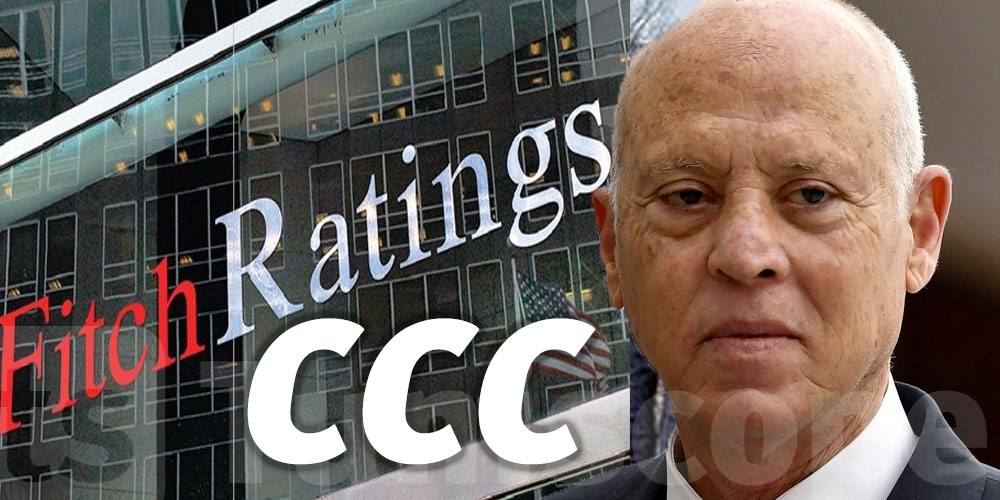The political and economic crisis is worsening in Kais Saied’s Tunisia. The uncertainties and fears over the collapse of this country has pushed Fitch agency to downgrade its Long-Term Foreign-Currency Issuer Default Rating (IDR) to ‘CCC-‘ from ‘CCC+’.
The downgrade of Tunisia’s IDRs, which is becoming a failed state, comes after failure of Tunisia’s authorities to mobilize sufficient funding to meet its large financing requirement, said the global rating agency in a press release.
The country was unable to implement prior actions for an agreed IMF program, which would be necessary to release the associated bilateral financing that underpinned Tunisia’s financing plan.
“We forecast that government financing needs will be high at around 16% of GDP in 2023 (about $7.7 billion) and 14% of GDP in 2024 ($7.4 billion), well above the 2015-2019 average of 9%, and one of the highest of ‘C’/’D’ rated peers”, said Fitch experts.
This is the result of high fiscal deficits and large debt maturities, both domestically – as the government has increasingly relied on shorter-term domestic financing to compensate for scarce external financing – and externally, including Eurobond repayments (Є500 million in 2023 and Є850 million in 2024), explained Fitch, saying the government’s financing plan remains very risky.
Tunisia’s financing plan relies on more than $5 billion of external financing (10% of GDP). “We believe that the majority of the plan is contingent on an IMF program, and will likely not be fully mobilized this year, even if an IMF agreement is reached in 2H23”, said Fitch.
“The country would unlock around $3.5 billion of the planned external funding in 2023. This would create domestic financing needs of about TND13.5 billion (8.5% of GDP), about 25% higher than the last three-year average and more than 3x the 2015-2019 average”, underlined the analysts of the rating agency.
“We believe this will stretch domestic market government debt absorption capacity, mainly covered by the banking system, and will require continued liquidity injections from the central bank,” said Fitch.
In the absence of an IMF agreement, “we believe about $2.5 billion of external financing could be attainable in 2023 – mainly from Algeria, AfreximBank, project loans from multilateral partners and increased grants from bilateral partners – intensifying the financing challenges. Alternative financing sources for 2024 are not clear”, added the agency.
The reforms and IMF negotiations are stalled, said Fitch. The IMF board did not approve a new $1.9 billion 48-month Extended Fund Facility (EFF), planned in December 2022, as prior actions were not met. Tunisian president has expressed opposition to an agreed reform of fuel subsidies.
Furthermore, foreign exchange reserves in Tunisia are at Risk as external financing sources are highly dependent on government external borrowing, while the stalled progress on reforms continues to preventing the reduction of budget vulnerabilities to shocks.
Fitch expects Tunisia’s GDP growth to slow to 1.4% in 2023 from 2.4% in 2022 due to high inflation (11%), a tighter policy mix in response to the macro and fiscal imbalances, weak growth in Europe (Tunisia’s main trading partner), a high level of uncertainty regarding the direction of reforms and the economy, and unfavorable weather impacting the agriculture sector.



